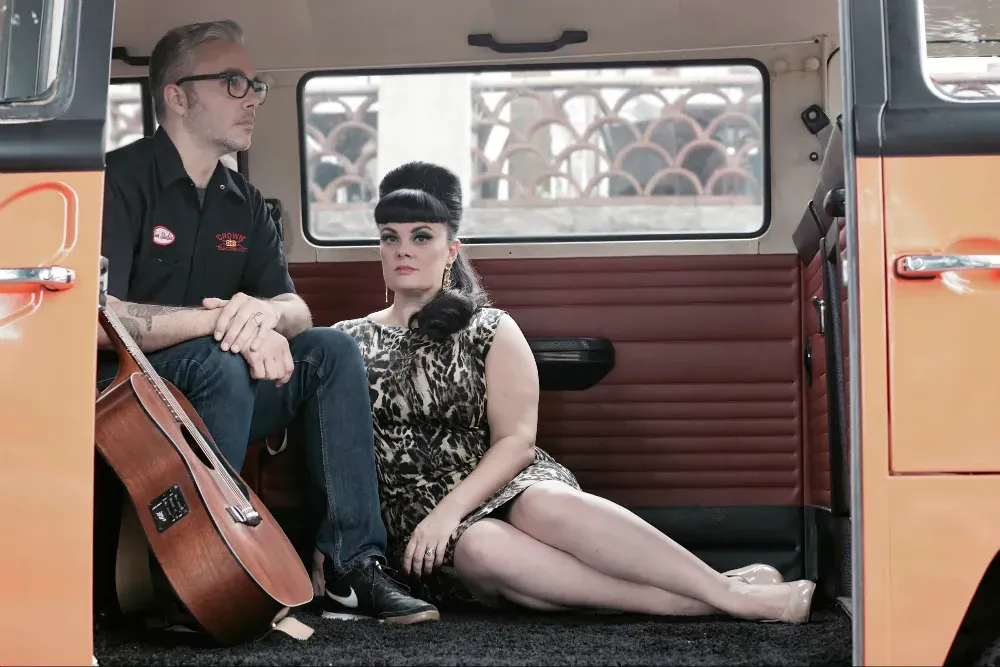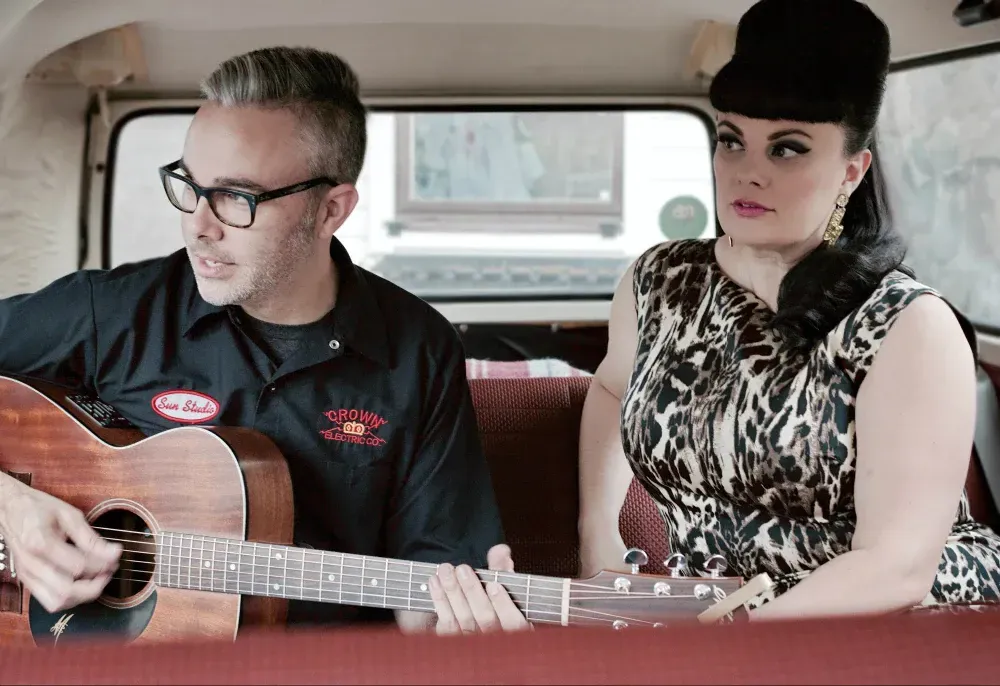When you hit the wall
Written by
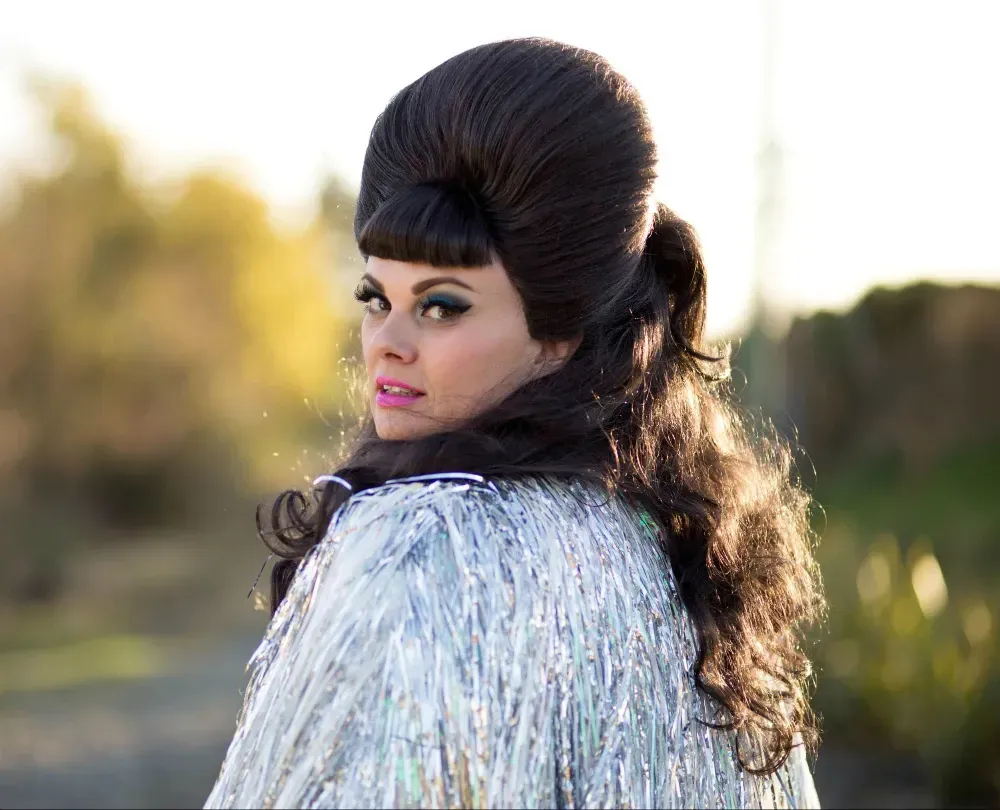
Known for her bold, bubbly stage presence and a back catalogue that fuses retro instrumentation with a thoroughly modern sensibility, it's no wonder that singer-songwriter Tami Neilson has won plenty of fans in her adopted home of New Zealand and around the world.
She can count a Silver Scroll nominated album, rave reviews from international media, and countless sold-out shows amongst her accolades.
But while touring through Europe last year, Tami found that she had hit a wall.
When everything feels hard
“I had been touring internationally for 2-3 years and had the same template every time - five full weeks of gigs,” Tami says. “There was one stretch where I did 20 shows in 22 days; it was just insanity and I felt my physical and mental health was suffering.”
Returning to New Zealand, Tami deliberately took the entire summer off to be with her two young children and re-evaluate how she was operating as a creative.
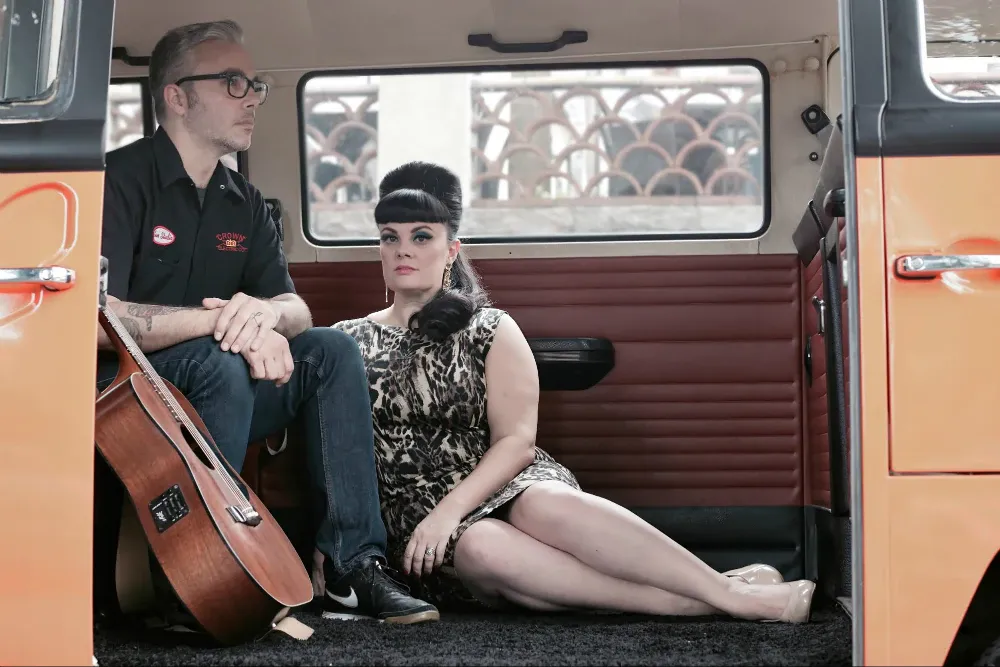
Tami Neilson and her brother Jay. Supplied.
“How I was touring was impacting how I was creating,” says Tami. “You need to be mindful long before you [hit that wall] and I had really burnt out,” she says. “When you’re on that treadmill, everything is moving forward and you have to keep it going. When I decided to jump off it was when I could look at what I had been doing from a distance. I realised that I had lost my joy; that everything felt too hard, it was difficult to focus and I wasn’t going into a tour excited.”
For Tami, figuring out the steps of how to get her sense of joy back meant taking a critical look at the touring model and making it work for her rather than the other way round. “The touring model is invented for young, single males - not 42-year-old mothers,” she says. “I have learned to tour smarter and have the most impact in the shortest amount of time. Instead of doing five weeks of club shows to a few hundred people each night, I do one festival to 10,000 people.”
“The touring model is invented for young, single males - not 42-year-old mothers.”
Having her Canada-based brother on her international tours has proved invaluable as well. “It makes such a difference having part of your village on tour who you can debrief and decompress with. When I’m missing my children, he gets it because he’s their uncle.”
Tami is nine months into this simplified way of touring and has noticed “such a huge difference in my peace and joy; I’m away every month, but I’m now home every month too. I’m able to say to my kids ‘see you next week’ - it eliminates so much anxiety. But it’s different for every musician and what season you’re in in your life; this just suits me.”
The comparison game
This shift in approach wasn’t without its challenges. “It’s really hard to say no when you’ve been saying yes for a decade - I have to remind myself that I don’t have to do things for the exposure or experience; I’ve got plenty of that,” she laughs. It also caused her to critically look at what Tami calls ‘the comparison game’.
“I have many friends who are artists so comparison is a natural thing. It can be healthy, but if the perspective is wrong it’s unhealthy. I have realised that it’s not a race, it’s a journey and its not against anyone else. I need to walk my own path. Everyone has different dreams and goals. So to compare myself to someone who is young and doesn’t have a family is ridiculous.”
“I have a different idea of what success means; every artist does. So to gauge yourself against someone elses journey can steal joy. I try to maintain a mindset of gratitude, because the minute you stop being grateful is when you lose your joy.”
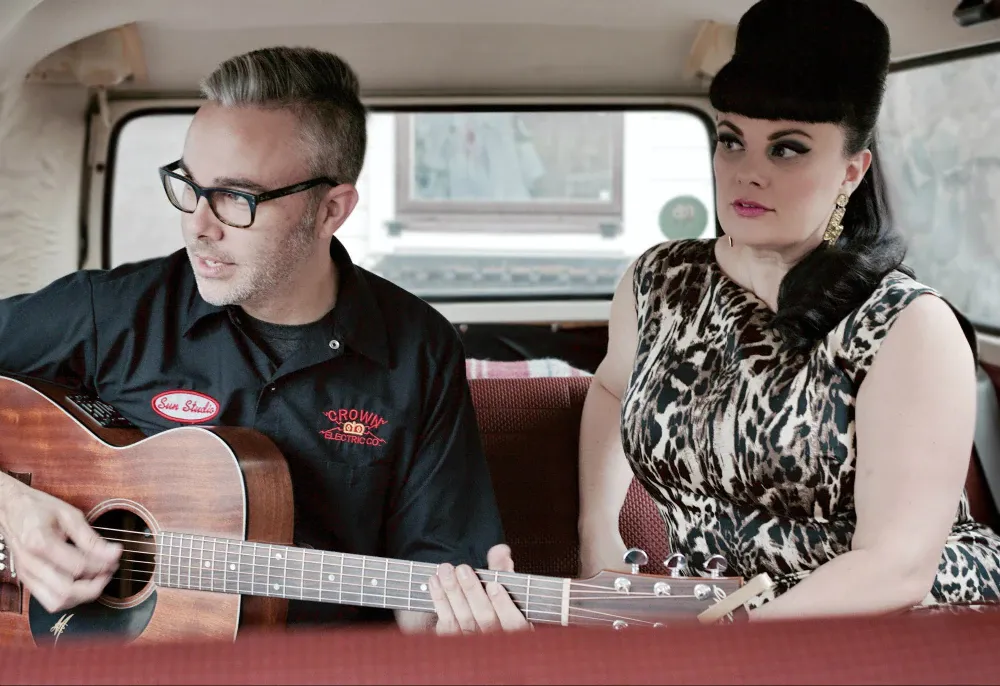
Tami Neilson and her brother Jay. Supplied.
In a world that romanticises an artist’s mental health issues as a boon, specifically the ‘tortured artist trope’, Tami notes that it's “a stereotype I’ve battled against my whole life. I’m the most goody-two-shoes squeaky clean person who never fit that mould. A lot of people make you feel that you’re not a good song writer because you’re too happy and joyful and its much cooler to have that tortured artist vibe,” she says.
“Great art it comes from life experience whether that be great joy or pain. I’ve written a lot of songs borne out of devastating pain. But what people connect with the most is authenticity - whether you be authentically tortured or authentically joyful. You can only write about what you know.”
“A lot of people make you feel that you’re not a good song writer because you’re too happy and joyful and its much cooler to have that tortured artist vibe.”
Reach out and talk
When considering some of the aforementioned issues faced by artists, Tami says “New Zealand is luckier than most - there is a lot more assistance available to us through funding bodies. But it’s almost like in order to access it, you already need to be in a place financially where you can pay upfront and be reimbursed later. It’s a system that could be fine-tuned.”
She suggests that “creatives are not good at the business side of things, so it could be useful to have access to a business mentor to give tools to alleviate that stress.”
Tami has been heartened that there are a lot more discussions about mental health and wellbeing out in the open, noting that the Music Foundation Wellbeing hotline has been a welcome addition in her field.
“But make sure you’re not afraid to reach out and talk to people,” she says. “There's a very small group of people who understand the touring lifestyle - I have a Musician Mummas coffee group who I keep in touch with and they’ve been wonderful.”
Tami Neilson is travelling the length of Aotearoa with her ‘This is Tami Neilson Tour throughout October. For more information and tickets, check out Tamineilson.com
Need to talk?
If you are experiencing mental health issues, all of the contacts below provide confidential, non-religious, non-judgemental support.
Need to Talk?: 1737 (call or text 24 hours a day, 7 days a week)
Samaritans NZ 0800 726 666 (24 hours a day, 7 days a week)
Lifeline: 0800 543 354 (24 hours a day, 7 days a week).
MusicHelps Wellbeing Service: free professional counselling and wellbeing resources available for musicians in Aotearoa. 0508 MUSICHELP or send them a message.
